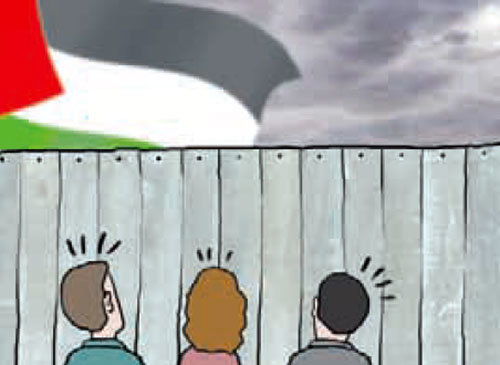PalFest’s irony
PalFest’s irony
Posted December. 05, 2018 07:51,
Updated December. 05, 2018 07:51

A festival is a party where people get together to enjoy arts as well as food, flowers, jewelry, and legends. It is usually an exciting, cheerful event with smiley faces and sometimes held under sputtering fireworks. Yet, there is a festival that exudes sadness, rather unbefitting of the name: The Palestine Festival of Literature (PalFest).
Unlike other festivals where the host prepares everything and “waits” for guests, the world’s writers should “go visit Palestine” by themselves to join the PalFest. Surrounded by an 8-meter high concrete wall, barbed-wire fences, and a checkpoint, those in Palestine cannot host the festival as it takes a few hours for them to go to a place that would take only 10 minutes otherwise.
Writers who participate in the annual literary festival take a look around the site full of pains during the day, and engage in various activities at night along with Palestinians such as reciting poems and discussion. Though stopped by Israeli soldiers more often than not, participants hardly mind as long as they can bond with Palestinians and let the world know the story of their life like a living hell. Sri Lankan-American writer Ru Freeman confessed that she always tears up when thinking of what she saw and heard there. In fact, not only Freeman but every participant does so, except for Palestinians.
“This Is Not a Border,” a book published in 2017, complied the poems and essays that brought tears to the writers’ eyes. Indeed, it is a great irony that a festival makes its guests cry, and it makes one wonder why they named the event the festival. This may be because they wanted to reaffirm and console Palestinians with, in the words of Edward Said, “the power of culture over the culture of power.” Therefore, what would it be called other than the festival?
Won-Joo Lee takeoff@donga.com







